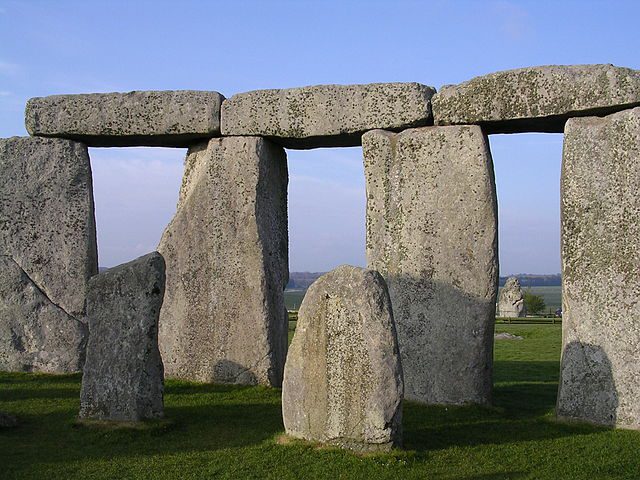When Dickens Tried to Institutionalize His Wife, Traffic and Stonehenge, and a Defense of Federal Arts Funding

In case you were wondering: Computers can’t—and will never be able to—create art. “Human creative achievement, because of the way it is socially embedded, will not succumb to advances in artificial intelligence. To say otherwise is to misunderstand both what human beings are and what our creativity amounts to. This claim is not absolute: it depends on the norms that we allow to govern our culture and our expectations of technology. Human beings have, in the past, attributed great power and genius even to lifeless totems. It is entirely possible that we will come to treat artificially intelligent machines as so vastly superior to us that we will naturally attribute creativity to them. Should that happen, it will not be because machines have outstripped us. It will be because we will have denigrated ourselves.”
Stonehenge is one of Britain’s most popular tourist destinations, but the traffic is hell. What to do about it? “What could be a 10-minute ride through the 6,500-acre UNESCO world heritage site in which Stonehenge sits is at peak times an hour-long, bad-tempered grind – a torture to holidaymakers making for Devon and Cornwall, a drag on the economy of the south-west of England and a bane to locals. According to David Bullock, who works for the national road-building agency, Highways England: ‘On Fridays, for a person living in Amesbury, it is quite a torrid affair, if you want to go anywhere.’ But this gridlock is not easily resolved.”
The return of the cassette tape? “Sales are soaring and current stars are releasing tracks on the format… but is anyone actually listening to them?”
In defense of federal arts funding: “Libertarians don’t think the federal government should give money to culture. Conventional conservatives believe that the NEA funds porn, sacrilege, and Communism. Both views are spurious.”
Barry Spurr is named literary editor of Quadrant following Les Murray’s retirement from the post in December.
Essay of the Day:
Did you know that Charles Dickens tried to have his wife institutionalized? In The Times Literary Supplement, John Bowen explains what recently discovered letters reveal about how badly Dickens treated Catherine Dickens:
“The ninety-eight surviving letters by Dutton Cook to his friend and fellow journalist William Moy Thomas (1828–1910), sold at auction and acquired by the Houghton Library in 2014, give a vivid picture of literary life in the 1870s and early 80s. Thomas had worked as a staff writer on Dickens’s journal, Household Words, and like Cook knew the Dickens family well. Cook tells him all sorts of theatrical and literary gossip, of writing for Charles Dickens Jr, and of meetings with Dickens’s daughters Mamie and Katey, from whom he commissioned a painting of his daughter Sylvie. Most importantly, he writes about Catherine, recording a visit she makes to her sister Helen in Cheltenham, giving updates on her illness, and a moving first-hand account of Helen’s funeral, which took place in heavy snow. Cook is there when she receives the telegram with the news of the death of John Forster, Dickens’s closest friend and biographer: ‘She hates him bitterly . . . for he was Dickens’ adviser and agent in all the dirty work of the separation’.
“Above all, the letters give a convincing account of the break-up of the Dickens marriage, evidently directly from Catherine herself, an account that is full of detailed information about Dickens, about Catherine, and about Ellen Ternan. This is surprising, because Catherine had always been exceptionally discreet about what had happened to force her to leave her marital home. But during the final year of her life, she became much more frank about those long terrible months of marital strife in 1857–8. Knowing that she was dying, Catherine felt she had to tell her side of the story. Katey Dickens told George Bernard Shaw that ‘During almost every day of that time she spoke to me, whenever I was alone with her, of my father. All her grievances against him came out’. Katey kept secret much of what she had learned, but she told a little to Shaw and more to her friend Gladys Storey, who eventually published some, after Katey’s death, in Dickens and Daughter (1939). Cook takes us much nearer to the horse’s mouth.”
Photo: Cortina d’Ampezzo
Receive Prufrock in your inbox every weekday morning. Subscribe here.
Comments